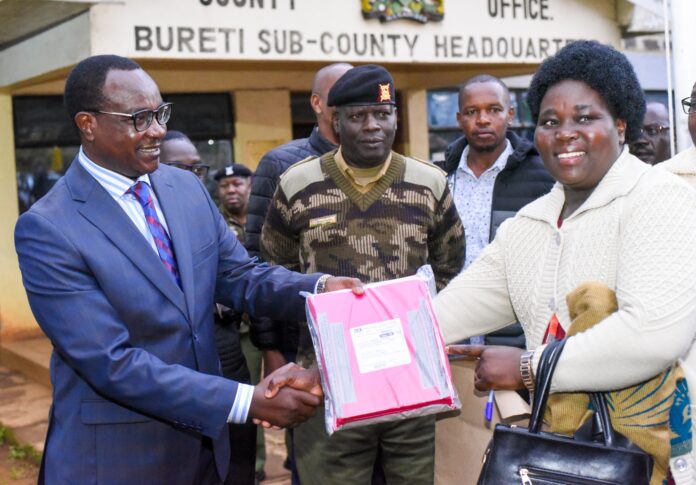The Kenya National Examination Council (KNEC) has unveiled smart digital padlocks to boost the security and transparency of national examinations beginning in 2025.
Education Cabinet Secretary Julius Ogamba announced that the high-tech locks are being piloted in 250 examination storage containers across the country.
The devices are linked directly to the KNEC command centre, allowing real-time monitoring of when each container is opened and closed. Officials say the move is aimed at ending persistent cases of exam leakage and malpractice.
“These locks are linked to the KNEC command centre, allowing real-time tracking of the exact time each container is opened and locked,” said Ogamba during the launch on Monday.
Under the new measures, all individuals within examination centres will be required to surrender their mobile phones immediately after the distribution of papers. The National Police Service will maintain oversight of security for the Kenya Certificate of Secondary Education (KCSE), while school managers and education officials will take charge of the Kenya Primary School Education Assessment (KPSEA) and Kenya Junior School Education Assessment (KJSEA).
The ministry has also introduced personalized examination papers bearing each candidate’s name and a unique random number. Candidates will write answers directly in their question booklets, which will later be anonymized by detaching the identification section before marking. Ogamba said the change is meant to guarantee fairness and eliminate marking bias.
Exam collection schedules have been adjusted to fit the new system. KCSE papers will be collected twice daily, while KPSEA and KJSEA materials will be collected once each morning.
This year’s assessments will be historic as Grade Nine learners sit for their first national exam under the Competency Based Curriculum. KPSEA exams will run from October 27 to 29, and KJSEA from October 27 to November 3, 2025.



















